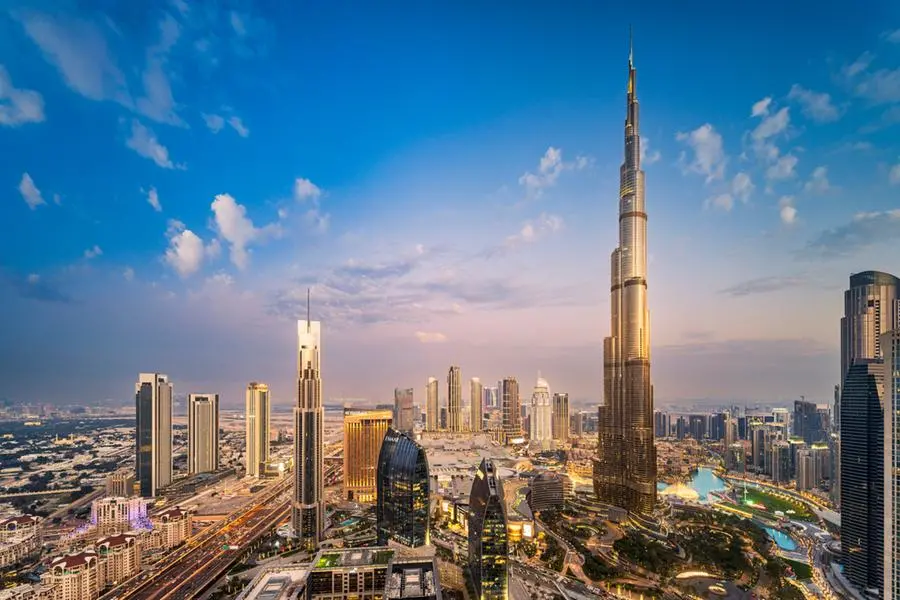PHOTO
The UAE’s non-oil gross domestic product (GDP) rose 5.9% in the first nine months of 2023, Sheikh Mohammed bin Rashid Al Maktoum, Vice President and Prime Minister of the UAE and Ruler of Dubai, said on Friday.
The Dubai ruler, who chaired the UAE Cabinet’s first meeting of the year in Abu Dhabi, noted that the past 12 months have been “exceptional”, with the country witnessing “unprecedented economic growth” and dominating various global indices.
“The year 2023 was exceptional… It was a year during which the UAE witnessed unprecedented economic growth, massive global political presence, scientific advancement, new educational and healthcare developments,” the Dubai ruler said on Twitter and in a statement.
“The UAE was ranked first globally in more than 215 indices related to development, economy and human capital, according to international reports.”
The first Cabinet session of the year reviewed the UAE’s performance in the past 12 months and approved the work plan for 2024, which will focus on implementing the national priorities announced by UAE President Sheikh Mohamed bin Zayed Al Nahyan during Union Day.
“We gave our directives to all federal government entities to implement government plans, initiatives and projects that serve the national priorities announced [by the UAE president,” the ruler said.
Achievements in the past year
In the housing sector, the UAE provided housing support worth around AED3.2 billion for Emiratis. The UAE citizens’ home ownership rate grew to 90%, the second highest in the world, Sheikh Mohammed said.
With regards to Emiratisation efforts, the UAE’s Emirati Talent Competitiveness Programme, NAFIS, increased the total number of UAE nationals working in the private sector to approximately 92,000.
In the legislative space, the year 2023 was also “the most active” in the country’s history, with a total of 73 federal laws issued in 12 months.
The International Monetary Fund (IMF) said in October that the UAE’s economic growth had been strong, supported by robust domestic activity, while fiscal and external surpluses remained high on the back of high oil prices.
The country’s non-hydrocarbon GDP growth was expected to exceed 4% during the year and to remain at a similar pace this year.
(Writing by Cleofe Maceda; editing by Brinda Darasha )





















